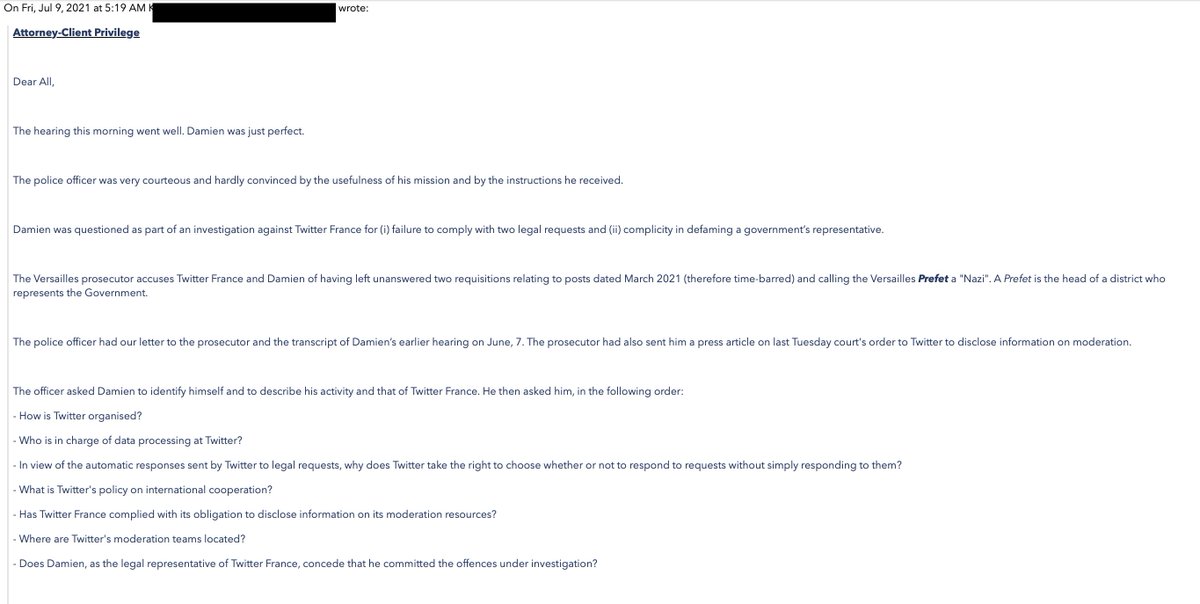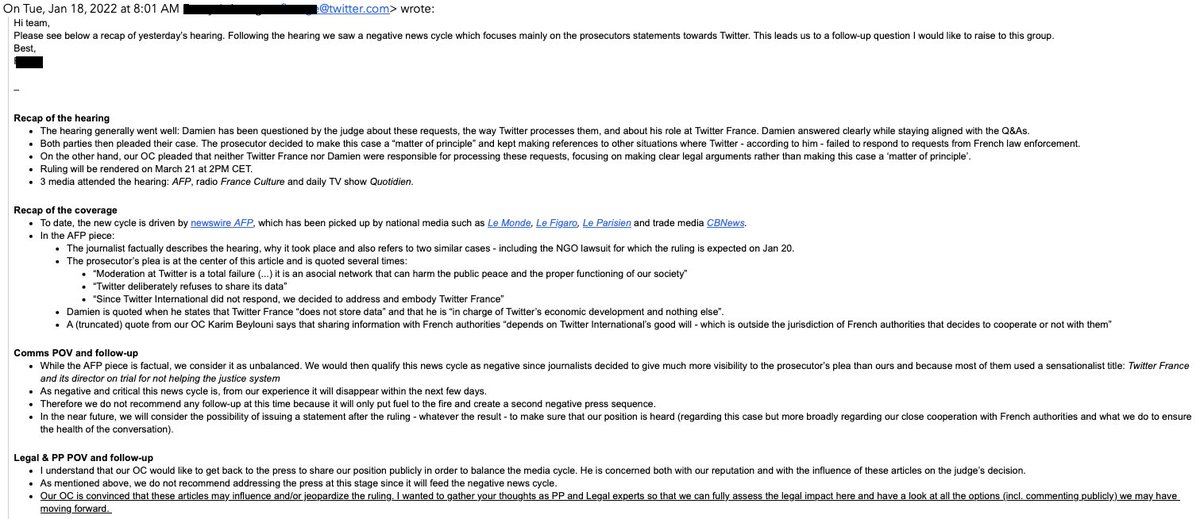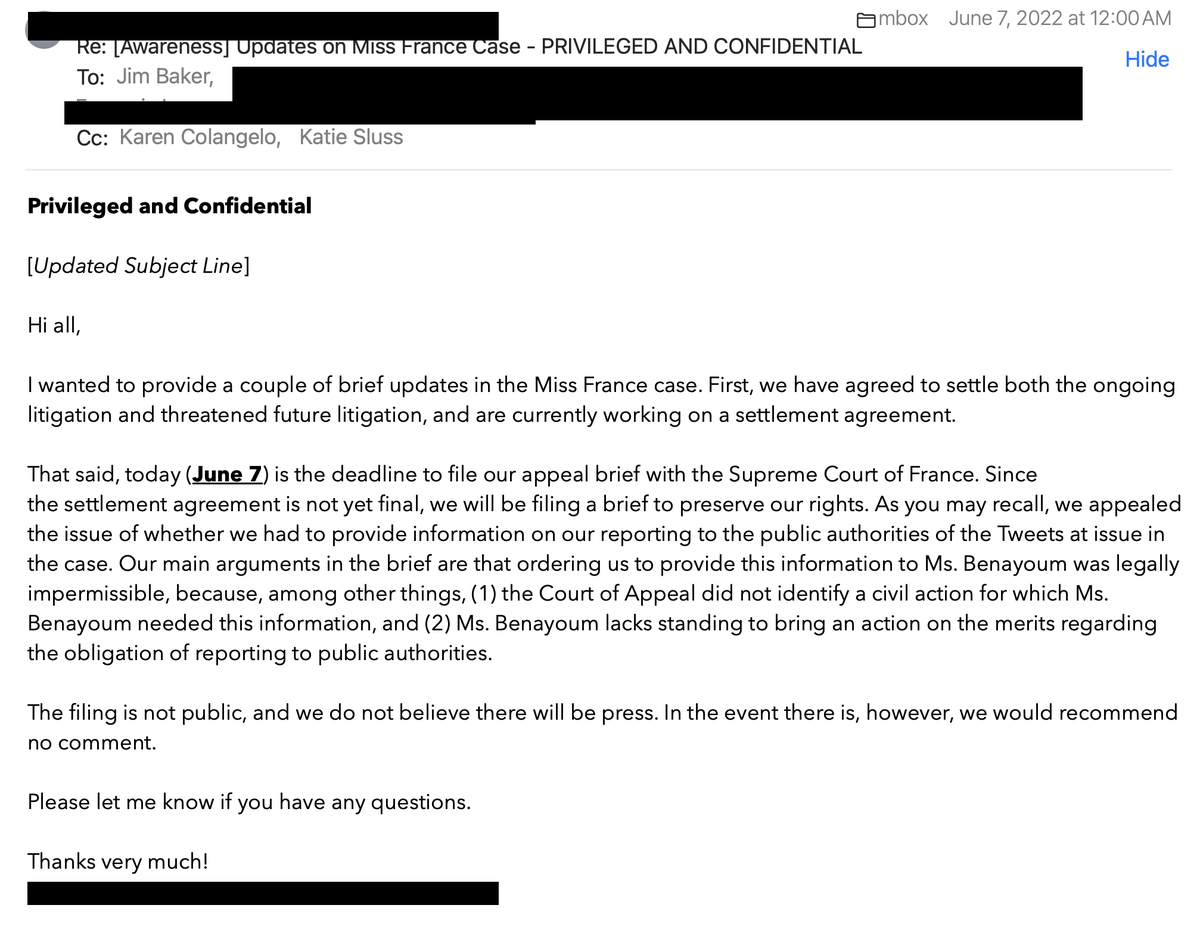In reply to:
Michael Shellenberger
@shellenberger
·
149d
Michael Shellenberger
@shellenberger
·
149d
Michael Shellenberger
@shellenberger
·
149d
Michael Shellenberger
@shellenberger
·
149d
Michael Shellenberger
@shellenberger
·
149d
Michael Shellenberger
@shellenberger
·
149d
The statement and its context engage in public discourse by discussing issues related to censorship, legal actions, and the role of France in regulating online platforms. It critiques the involvement of France in what is described as a 'censorship industrial complex,' suggesting a historical and ongoing influence on content moderation and legal actions against platforms like Twitter.
- The statement raises concerns about censorship, which could be seen as promoting harm reduction by advocating for free speech, but it may also imply harm by suggesting undue influence or control. [+1]Principle 1:I will strive to do no harm with my words and actions.
- The statement respects privacy by not disclosing personal information but could be seen as critical of certain entities, which might border on disrespect if not substantiated. [-1]Principle 2:I will respect the privacy and dignity of others and will not engage in cyberbullying, harassment, or hate speech.
- The statement aims to promote understanding of the complexities of censorship and legal actions, though it may lack empathy towards the entities it critiques.Principle 3:I will use my words and actions to promote understanding, empathy, and compassion.
- The statement engages in criticism of France's role in censorship, which could be constructive if it leads to dialogue, but it risks being perceived as a personal attack on the country's policies. [-1]Principle 4:I will engage in constructive criticism and dialogue with those in disagreement and will not engage in personal attacks or ad hominem arguments.
- The statement uses its platform to highlight issues of public concern, potentially contributing to societal betterment by encouraging discussion on censorship and free speech. [+1]Principle 6:I will use my influence for the betterment of society.


